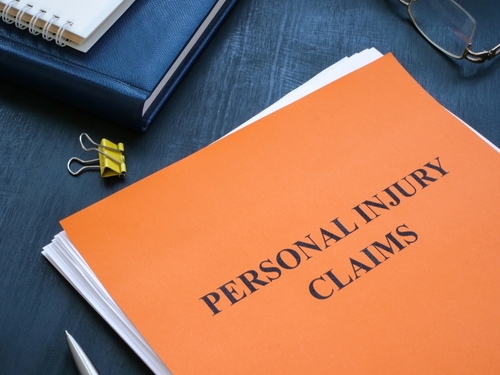In personal injury claims, economic damages represent quantifiable financial losses incurred by the plaintiff (victim) due to the injury caused by the defendant’s (at-fault party) negligence or wrongful actions. These damages aim to compensate the injured party for actual monetary expenses and losses directly attributable to the incident. The following is a brief overview of the damages a Virginia Beach personal injury lawyer can recover on your behalf. For more detailed information about your particular situation, call Shapiro, Washburn & Sharp.
Medical Expenses
Medical expenses are among the most significant economic damages in personal injury cases. They encompass all costs associated with treating and rehabilitating injuries caused by the accident or incident. These expenses may include:
- Hospital bills: Costs for emergency room visits, surgeries, hospital stays, and other medical procedures required immediately following the injury.
- Doctor’s fees: Charges for consultations, examinations, diagnostic tests (like X-rays and MRIs), and specialist appointments related to the injury.
- Medications and medical supplies: Expenses for prescribed medications, medical devices (such as crutches or braces), and any other necessary supplies for recovery.
- Rehabilitation and therapy: Costs for physical therapy, occupational therapy, speech therapy, or other rehabilitative services needed to recover from the injury.
- Future medical expenses: Anticipated costs for ongoing medical care, future surgeries, or therapies required as a result of the injury, often estimated with the assistance of medical experts.
To substantiate medical expenses, plaintiffs typically provide detailed medical records, bills, receipts, and expert testimony if projecting future medical needs.
Lost Income
Lost income refers to the wages, salary, or earnings the plaintiff cannot earn due to their injury. This includes both past and future lost income:
- Past lost income: Compensation for earnings lost during the recovery period when the plaintiff could not work due to the injury.
- Future lost income: Damages for the impairment of the plaintiff’s ability to earn income in the future, particularly if the injury results in a permanent disability or long-term impairment that affects their earning capacity.
Evidence of lost income typically includes pay stubs, tax returns, employment records, and expert testimony from vocational rehabilitation specialists or economists to project future earning potential.
Loss of Earning Capacity
Loss of earning capacity compensates the plaintiff for the reduction in their ability to earn income in the future as a result of the injury. This damage category considers factors such as:
- Occupation and skills: The plaintiff’s profession, skill set, and earning potential before the injury occurred.
- Impact of injury: The extent to which the injury affects the plaintiff’s ability to work, including any permanent disabilities or limitations.
- Age and life expectancy: The plaintiff’s age at the time of the injury and their anticipated work-life expectancy.
Calculating loss of earning capacity often involves expert testimony from vocational experts or economists who analyze the plaintiff’s career trajectory and potential earnings based on various scenarios.
Property Damage
Property damage refers to the costs associated with repairing or replacing personal property damaged or destroyed due to the incident that caused the injury. This commonly includes:
- Vehicle damage: Repair or replacement costs for vehicles damaged in car accidents or other incidents.
- Personal belongings: The cost of repairing or replacing damaged personal belongings, such as clothing, electronics, or other items affected by the incident.
To substantiate property damage claims, plaintiffs provide repair estimates, receipts for replacement items, photographs of the damaged property, and other relevant documentation.
Legal Considerations
Collecting and preserving evidence is crucial for proving economic damages in personal injury claims. Plaintiffs should maintain thorough records of medical expenses, employment details, property damage, and any other relevant financial losses.
In cases involving significant future medical expenses, lost income, or loss of earning capacity, expert testimony from medical professionals, vocational rehabilitation specialists, economists, or other qualified experts may be necessary to calculate and justify the damages sought.
Some jurisdictions impose statutory caps or limits on the amount of economic damages that can be awarded in personal injury cases, particularly in medical malpractice claims or other types of tort litigation. For example, the current cap for all damages in Virginia malpractice cases is $2.6 million.
Call Our Personal Injury Law Firm for Legal Assistance
If you have been injured in an accident caused by another party, make sure you have a skilled Virginia Beach personal injury attorney advocating for you. Contact Shapiro, Washburn & Sharp to schedule a free consultation. We will evaluate your case and determine what your legal options may be. Our legal team has successfully represented many accident victims, like the $930,000 insurance settlement our firm obtained for one client who suffered multiple injuries when another driver failed to yield at an intersection and attempted to take a left turn.
